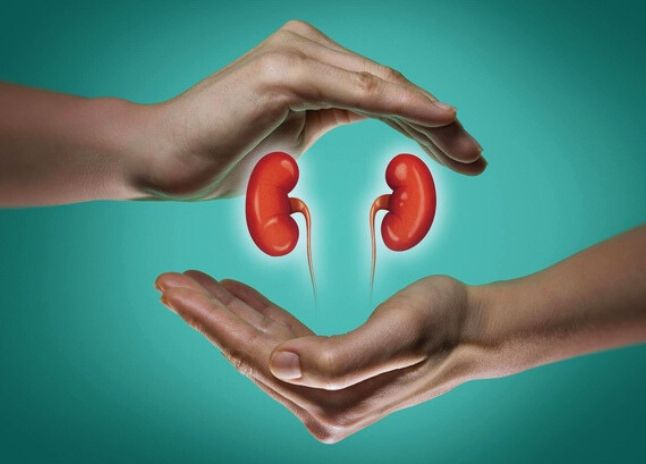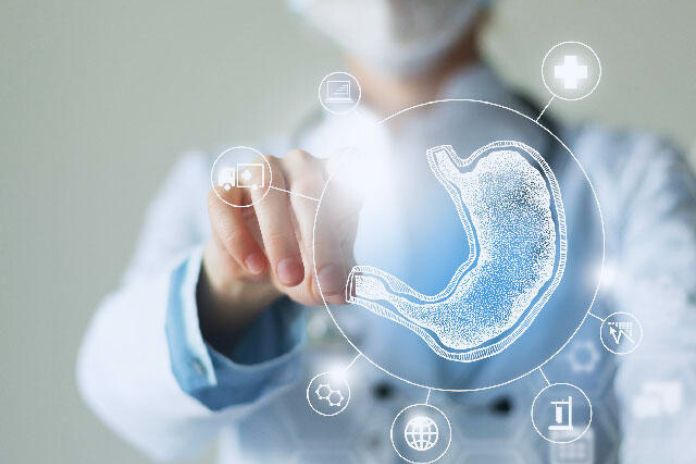The kidneys are essential organs that must be cared for. Here are foods that help cleanse them and avoid kidney problems. There are two kidneys, which perform many essential functions for the body: they filter the blood, eliminate waste, regulate blood pressure, stimulate the production of red blood cells in the bone marrow, etc. We quickly understand that these are ESSENTIAL organs, so we must take care of them and not let them get dirty.
Bananas To Prevent Kidney Disease
Thanks to its richness in potassium (360 mg per 100 g of banana, or 1/5th of the daily intake – a banana weighs approximately 120 g), the banana is protective for the kidneys. “Dietary potassium is associated with a lower risk of developing chronic kidney disease,” showed a 2019 study of more than 5,000 people and published in the journal Medical Science Monitor. Another study carried out in 2005 showed that women who consumed two to three bananas per week had 33% less risk of developing kidney disease (polycystic kidney disease, stones, kidney stones, etc.).
Chives “For Depuration”
Thanks to its depurative functions, chives can clean the kidneys and strengthen renal and urinary function. Moreover, in Chinese medicine, chives are an exciting health food. “Chives are excellent for depuration; they dry out edematous deposits and tone the Qi (energy in Chinese medicine) of the Kidney,” writes Roberto Marrocchesi in his book “Purify and Heal the kidneys” (Macro Editions), graduated in pharmacy naturopath, and nutritionist. Sprinkle fresh or frozen fish, meat, eggs, or sauces.
Diuretic Blackcurrant Eliminates Kidney Toxins
Rich in potassium, calcium, vitamin C, and flavonoids (antioxidants with anti-inflammatory and immunostimulating properties), blackcurrant is a fruit that acts as a kidney diuretic. It promotes the elimination of toxins and improves kidney function. Renal. Recommended: a glass of blackcurrant juice daily or 2 cups of blackcurrant berry infusion daily. On the other hand, be careful; blackcurrant leaves, as an infusion, are contraindicated in cases of kidney failure because they are too diuretic and draining.
Dandelion Anti-Kidney Stones
Also known as meadow chicory, dandelion contains vitamins A, B, and C and trace elements (calcium, potassium, magnesium, silica, etc.), a nutritional richness particularly beneficial for the kidneys. It is mainly the leaves and roots used to make depurative infusions if it can be eaten in a salad with a vinaigrette. The blossom petals can be added to servings of mixed greens.
Beans Are Good For Kidney Health
For good kidney well-being, you should consume sufficient protein (however, not to an extreme). “During processing, part of the food proteins are changed into urea, separated by the kidneys, and wiped out in the pee. The more food proteins ingested, the more urinary urea there is. Due to renal lack, this disposal diminishes, and urea aggregates in the blood.
For these reasons and to avoid increasing the work of the kidneys, it is recommended to control protein intake “, explains Professor Moglie le Quintrec-Donnette in a. file dedicated to renal health at Montpellier University Hospital. You should vary your protein sources (we don’t just eat red meat!) and include plant proteins in your plate, which are better eliminated by the kidneys. Generally speaking, legumes (lentils, split peas, dried beans, etc.) are rich in vegetable proteins, particularly beans containing the most protein (26g of protein per 100g).
Fenugreek, The Detoxifying Aromatic
Fenugreek is an aromatic plant with multiple virtues, including diuretics. Sprinkled in dishes at a rate of 1 to 3 g of powder per day, it helps to evacuate substances that properly function the kidneys. The book Living Food for Your Health describes it, particularly in its sprouted version, as an “excellent liver and kidney cleanser.” Be careful of carbonated water; it’s too salty!
- Too much salt is bad for the kidneys. Therefore, it is advisable to eat “fresh” or “unprepared” foods as much as possible, which naturally contain less salt, and to season with garlic, onions, shallots, thyme, basil, dill, curry, nutmeg, lemon…
- Drinking between 1 liter and 1.5 liters of water daily is recommended; excess drinking is useless and does not improve kidney function. Be careful with sparkling waters, as they can be rich in salt; favor sparkling waters containing less than 50 mg of sodium per liter.
Read Also: Asphyxiated Skin: How To Recognize It And Treat It




